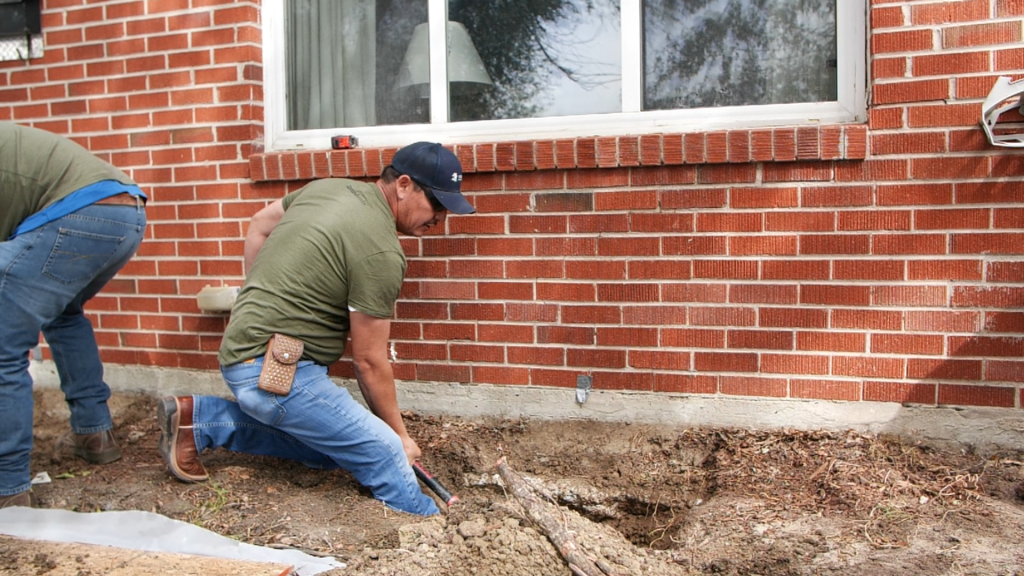Your foundation is the foundation of your home, and it’s important to keep it in good condition. A damaged foundation can cause a number of problems, including cracks in the walls, floors, and ceilings; water damage; and even structural instability.
In some cases, the damage to your foundation may be minor and can be repaired. However, in other cases, the damage may be more severe and may require the foundation to be replaced.
Factors to consider when deciding between repair and replacement
Severity of the damage
If the damage to your foundation is minor, it may be possible to repair it. However, if the damage is more severe, it may be necessary to replace the foundation.
Age of your home
Older homes are more likely to have foundation problems than newer homes. If your home is older, it may be more cost-effective to replace the foundation than to repair it.
Cost of repair vs. replacement
The cost of repairing a foundation will vary depending on the severity of the damage. The cost of replacing a foundation will also vary depending on the size of your home and the type of foundation you choose.
Benefits of repairing your foundation
- Repairs are typically less expensive than replacements.
- Repairs can be completed in a shorter amount of time than replacements.
- Repairs can often be done without disrupting your daily life.
Benefits of replacing your foundation
- Replacements can provide a more permanent solution to foundation problems.
- Replacements can improve the energy efficiency of your home.
- Replacements can increase the value of your home.
How to choose between repair and replacement
If you’re not sure whether to repair or replace your foundation, it’s important to consult with a qualified foundation repair contractor. The contractor will be able to assess the damage to your foundation and recommend the best course of action.
Tips for finding a qualified foundation repair contractor
- Get multiple estimates from different contractors.
- Ask for references from previous customers.
- Make sure the contractor is licensed and insured.
- Get everything in writing, including the scope of work, the cost, and the warranty.
By following these tips, you can choose a qualified foundation repair contractor who can help you fix your foundation and keep your home safe and sound.
Retaining Wall Repair: How to Fix a Damaged Retaining Wall
Retaining walls are an important part of many landscapes. They can help to hold back soil, create level areas, and provide privacy. However, retaining walls can also be damaged by weather, erosion, and other factors. If your retaining wall is damaged, it’s important to repair it as soon as possible to prevent further damage.
How to Repair a Retaining Wall
There are a number of different ways to repair a retaining wall. The best method for your wall will depend on the type of damage and the materials used to build the wall.
Repointing
This involves filling in cracks and gaps in the mortar joints with new mortar.
Resurfacing
This involves applying a new layer of concrete or stone to the face of the wall.
Regrading
This involves adjusting the slope of the ground behind the wall to reduce the amount of pressure on the wall.
Adding drainage
This involves installing drainage pipes behind the wall to help to prevent water from eroding the soil.
Installing anchors
This involves installing steel or concrete anchors into the ground behind the wall to provide additional support.
The Cost of Retaining Wall Repair
The cost of repairing a retaining wall will vary depending on the size of the wall, the type of damage, and the method used. In general, repointing is the least expensive option, followed by resurfacing, regrading, adding drainage, and installing anchors.
How to Choose a Retaining Wall Repair Contractor
If you’re considering repairing a retaining wall, it’s important to get multiple estimates from qualified contractors. This will help you ensure that you’re getting the best possible price and service.
How to Prevent Retaining Wall Damage
Retaining wall repair can be a major investment, but it’s important to remember that it’s an investment in the long-term health of your property. By repairing your retaining wall now, you can prevent more serious problems down the road.
Additional tips for preventing retaining wall damage
- Make sure the wall is properly constructed.
- Inspect the wall regularly for signs of damage.
- Repair any damage as soon as possible.
- Keep the area around the wall free of debris.
- Water the soil behind the wall regularly.
- Install drainage pipes behind the wall if necessary.
By following these tips, you can help to keep your retaining wall in good condition for many years to come. If you are looking for a foundation repair expert give Bedrock Foundation Repair a call for a free estimate!

